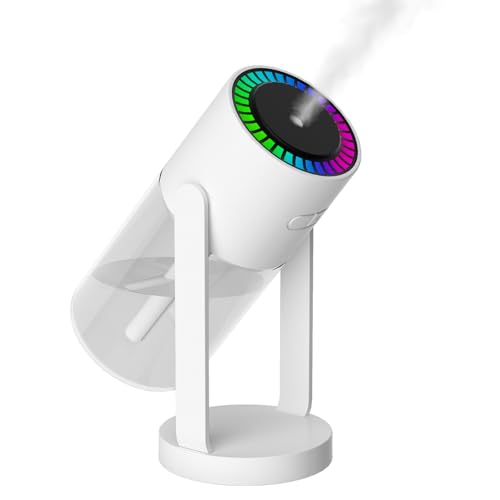Understanding the Relationship Between Humidity and Skin
Dry skin is often attributed to a lack of moisture in the air. This is especially true during the winter months when indoor heating systems contribute to dry air. This lack of humidity can strip the skin of its natural oils and cause irritation, flaking, and cracking. Conversely, if the humidity levels in your home are too high, it can promote the growth of mold and other harmful allergens that can exacerbate skin problems. As such, finding the right balance of humidity in your home is critical to maintaining healthy skin.
How a Humidifier Can Help Improve Skin
One way to help combat dry skin is by using a humidifier in your home. A humidifier adds moisture to the air and can help prevent your skin from becoming too dry. By maintaining humidity levels between 30% and 50%, your skin is better able to retain its natural moisture, reducing the risk of flakiness and cracking. In addition, a humidifier can help alleviate other skin conditions such as eczema and psoriasis, which are often made worse by dry air.
Things to Consider When Choosing a Humidifier
When deciding on which humidifier to use, there are a few factors to consider. Firstly, it is important to choose a humidifier that is appropriate for the size of the room. A small humidifier may not provide enough moisture for a larger space. Additionally, there are two main types of humidifiers: cool mist and warm mist. While both types can be effective in adding moisture to the air, cool mist humidifiers are typically preferred for households with children or pets, as they do not emit hot steam that can cause burns. Lastly, it is important to maintain a humidifier properly to prevent the growth of bacteria and other harmful microbes in the water tank.
Other Tips for Maintaining Healthy Skin
While using a humidifier is a great way to help maintain healthy skin, there are other things you can do to promote skin health as well. Some tips include using a gentle cleanser, moisturizing regularly, avoiding long hot showers, using sunscreen, and drinking plenty of water. Additionally, if you have persistent skin problems, it is important to consult with a dermatologist who can recommend the best course of treatment.
The Bottom Line
If you suffer from dry, irritated skin, a humidifier may be a simple solution to alleviate your symptoms. By maintaining the appropriate level of humidity in your home and properly caring for your humidifier, you can derive benefits that go beyond skin health, such as improving respiratory health and mitigating allergy symptoms.






